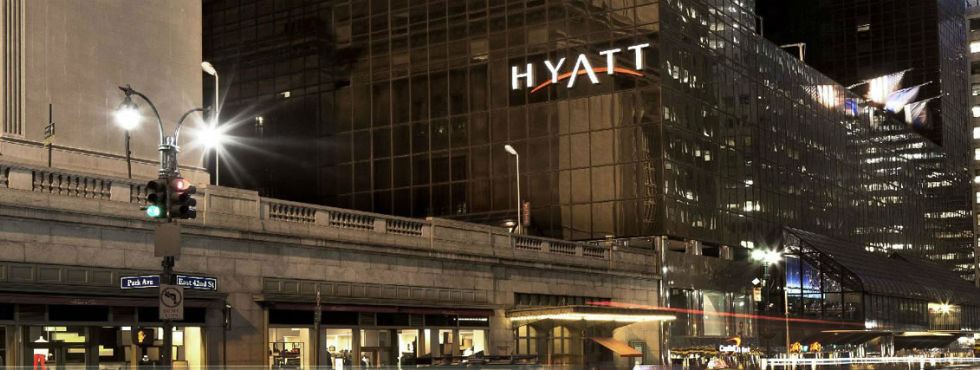Secure your place at the Digiday Publishing Summit in Vail, March 23-25

Using artificial intelligence to improve hospitality was a big topic at the Skift Global Forum, held Sept. 26-27 in New York City. Hyatt is exploring automation, but it doesn’t see robots replacing human beings in hotels. Digiday talked with Maryam Banikarim, global CMO of Hyatt, about the future of automation, home rentals and Amazon.
Will robots take the place of concierges?
Technology is an enabler, but people still need human connection. Robots aren’t going to be what consumers bond with. Empathy is a key thing that humans want, and robots can’t bring you that. Maybe you’re out all day working and want to come to a hotel and just go right to your room, but if you’re at a resort with your children, you want someone there to provide service. What you have to look at as well are the societal implications of automation.
What’s an example?
Facebook’s recent trouble with Russia creating political ads on its platform is a good example. You have to be concerned with that as a citizen, but also as a brand. At the pace automation happens, you have to be careful. Yet people want ease, so it’s important that there’s some kind of combination.
What kinds of connected room innovations is Hyatt looking into?
We are experimenting with things like mobile key entry and text notifications to make the check-in process easier. We want to let guests access their laptop content on TVs in their room and are looking into adding voice assistants like Echo. If I had an Echo in my hotel room, I would use it to control my air conditioning.
In August, Hyatt made its second investment in a home rental company in three years. Why is Hyatt interested in this space?
The sharing economy is here to stay. You can pretend that disruption is not happening, but it is. Hyatt invested in Oasis and Onefinestay because they offer the chance [for a traveler] to feel like a local. That in itself is an experience, and experiences are just the currency these days. The travel industry is fortunate because it is made up of experiences. It’s also more affordable over the longer term. That’s why people with larger families who are traveling for an extended amount of time will often rent a home through one of these companies.
Amazon has already disrupted several business segments. Do you see the company entering the travel business?
I’m sure they are focused on travel because they are Amazon and are focused on everything. But they just bought Whole Foods, so they shouldn’t do everything at the same time. They have to make that business work first and do more than sell Amazon Echos in its retail stores.
More in Marketing

WTF is Meta’s Manus tool?
Meta added a new agentic AI tool to its Ads Manager in February. Buyers have been cautiously probing its potential use cases.

Agencies grapple with economics of a new marketing currency: the AI token
Token costs pose questions for under-pressure agency pricing models. Are they a line item, a cost center — or an opportunity?

From Boll & Branch to Bogg, brands battle a surge of AI-driven return fraud
Retailers say fraudsters are increasingly using AI tools to generate fake damage photos, receipts and documentation to claim refunds.








